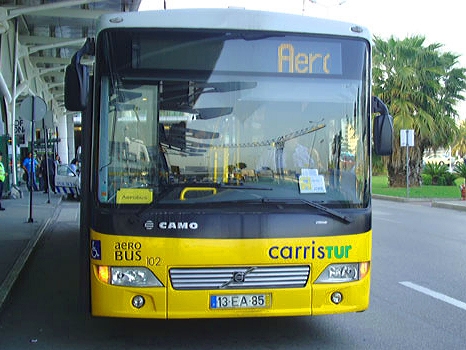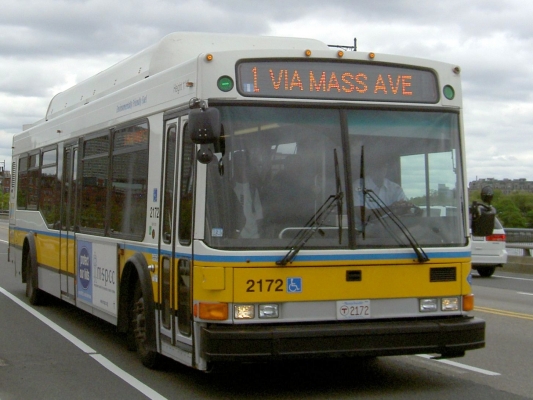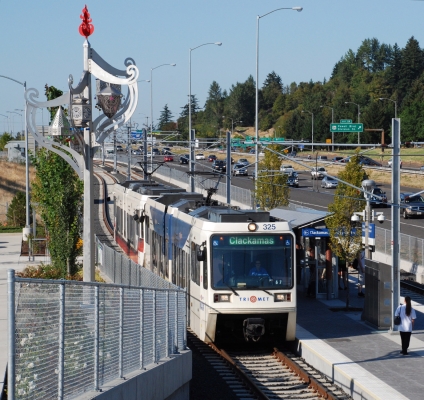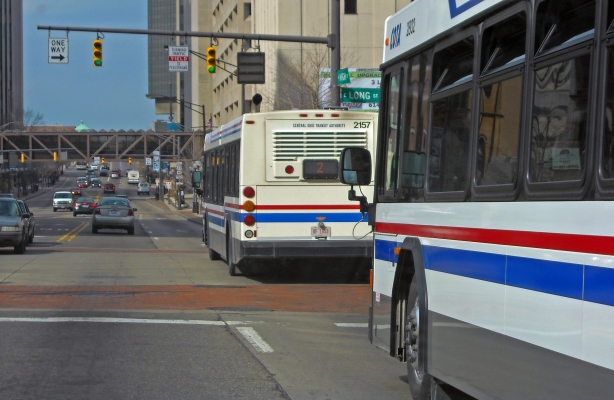Rick Krochalis, Federal Transit Administration (FTA) Region X Administrator, recently kicked off the Center for Transportation Seminar Series on January 8th with a presentation on the Regional Implications of the Federal Livability Initiative. The presentation touched on the federal interagency partnership in addition to FTA’s involvement in the effort. Smart growth and transit-oriented development are not new concepts. With growing congestion, energy use, greenhouse gas emissions, needs for maintaining a state of good repair on existing transportation systems in addition to a growing and aging and population in the United States; transit is playing a key role in helping address these issues.The seminar was followed with with a roundtable group discussion with TriMet and local partners; and meeting with faculty and students highlighting transit-related research. You can download the podcast or view the seminar if you missed the presentation. Livability is also the theme for the winter transportation seminar series.
Secretary of Transportation Ray LaHood proclaims “Portland is the transportation capital of the United States…” as part of his speech unveiling the Portland-made streetcar, the first to be built in the US in nearly 60 years. OTREC staff were present to witness this historic moment for Portland, in addition to having the opportunity to meet and talk with other leaders in transportation from Oregon. Pictured left: Jon Makler, Lily Makler, Congressman Peter DeFazio, and Hau Hagedorn Pictured right: Transportation Secretary Ray LaHood
Northeastern Universityís Peter Furth is known equally for his research in public transportation, bike planning and traffic signals. Furth brings his diverse interests to Portland for the holiday-shortened week of May 25th. On Tuesday, 5/26, there will be a seminar on his traffic signal priority work and on Wednesday, 5/27, there will be another seminar on his work regarding cycle tracks. In addition, Furth will have a variety of meetings with local transportation practitioners, including a bike tour by staff from the Portland Bureau of Transportation. The visit is co-sponsored by OTREC and IBPI. For more information about the seminars, visit PSU's Center for Transportation Studies.
Dr. Brian Taylor, Professor in Urban Planning and Director of the Institute of Transportation Studies at UCLA, was the guest speaker and OTREC Visiting Scholar for the CTS Transportation Seminar on November 16, 2007. Dr. Taylor presented "Transit’s Dirty Little Secret: Analyzing Patterns of Transit Use." Later in the day, he was also the keynote speaker at the fall TransNow Student Conference at PSU, presenting "Rethinking Congestion" to the group of students from around the northwest. Professor Taylor’s research centers around transportation policy and planning. In particular, his work explores how society pays for transportation systems and how these systems in turn serve the needs of people who have low levels of mobility.
Watch video
View slides
Summary: In an era of reduced government funding, transit operators struggle to reduce operating costs and increase revenues. Energy costs account for an important share of the total costs of urban and suburban bus operators. Using a case study of one operator in Lisbon, Portugal, this talk will expand upon the empirical research on bus transit operation costs and identify the key factors that influence the energy efficiency of the overall bus fleet. Our results of a multivariate analysis find the following dimensions influence transit energy efficiency: vehicle type, commercial speed, road grades and bus routes; and to a lesser extent elements related with engine failures and malfunctions. In addition to these findings, the methodology is a decision-support tool for the bus operator in optimizing energy efficiency. The transferrability of these results and analytical tools to other contexts will also be discussed.
photo_jas.jpg
Watch video
View slides
This webinar presents a novel method that utilizes location-based services for collecting public transportation data.A NITC-funded project at the University of Oregon will be presented that focuses on the development and evaluation of a mobile application based on Bluetooth low energy technology sensors and geofencing technology for crowdsourcing data collection.
The application was employed in a case study using Lane Transit District’s express bus system in the Eugene-Springfield area in western Oregon. The results show that using these types of location-based services offers an effective approach to collecting richer data than traditional means, while requiring...
Read moreSEMINAR VIDEO
SEMINAR SLIDES
Missed the presentation or want to look back at the slides? View the slides here.
Travel times, operating speeds, and service reliability influence costs and service attractiveness. This research outlines an approach...
Read moreThe video begins at 1:23.
View slides
Summary: The Federal Transit Administration's (FTA) discretionary New Starts program is the federal government's largest discretionary funding program. From heavy to light rail, from commuter rail to bus rapid transit systems, the FTA's New Starts program has helped to make possible hundreds of new or extended transit fixed guideway systems across the country, including most of TriMet’s light rail extensions and WES commuter rail. Beginning in 2001, FTA has required project sponsors to prepare a Before and After Study report on the effectiveness of planning and implementation of New Starts and Small Starts projects. The studies focus on five transit characteristics – project scope, capital costs, operating and maintenance costs, service levels, and ridership behavior – and compares these characteristics at various planning milestones, as well as before and after implementation of the project.
TriMet, in conjunction with FTA, has completed or nearly completed Before and After Study reports for three projects – Interstate MAX, WES Commuter Rail, and the Green Line – and is in the process of working on two more. This presentation will briefly describe the federal New Starts program, FTA requirements for Before and After Studies, summarize...
Read moreThe video begins at 1:47.
Abstract: In transportation planning and engineering, market segments or groups of individuals with varying attitudes and travel behavior are often identified in order to define a set of policies and strategies targeted at each segment. Examples include residential location choice studies, electric vehicle adoption and the marketing of public transit options. Defining market segments is common in the marketing literature, typically based on observed socioeconomic characteristics, such as gender and income. However, in addition to these characteristics, travelers may also be segmented based on variations in their observed travel and activity patterns. The activity-based approach to travel demand analysis acknowledges the need to analyze the travel patterns of individuals, conceptualized as a trip chain or tour, as opposed to individual trip segments. This has implications for identifying markets segments based on travel patterns which needs to distinguish between the sequencing and timing of travel choices and activities, in addition to the actual travel choices and activities. One approach that holds promise is pattern recognition theory which has wide applications in image analysis, speech recognition and physiological signal processing. In this study, pattern recognition methods are applied to observed daily travel and activity patterns from Oregon to identify travel market...
Read moreWatch video
View slides
Transit signal priority (TSP) is designed to reduce delay for transit vehicles through signalized intersections. For an existing TSP system, it is important to assess how timely and effective TSP phases are granted to buses that request priority. It is also necessary to evaluate the time savings and delays for buses and other vehicles as a result of TSP phases. However, due to the lack of disaggregated and integrated transit, traffic and signal phase data, previous studies have not investigated the TSP performance at the phase level. This study collects and integrates three archived databases: bus automatic vehicle location (AVL) and automatic passenger count (APC) data, intersection signal phase log data, and vehicle count data. Based on the integrated database, this research proposes innovative and useful performance measures to assess the timeliness and effectiveness of TSP phases to buses that request priority. This study also evaluates the time savings and delays to buses and other vehicles on major and minor streets. Results show that TSP performance varies significantly across intersections. On average, most of the TSP phases were granted timely to buses that request priority, but only a few of them were effective. Early green phases are more...
Read more




